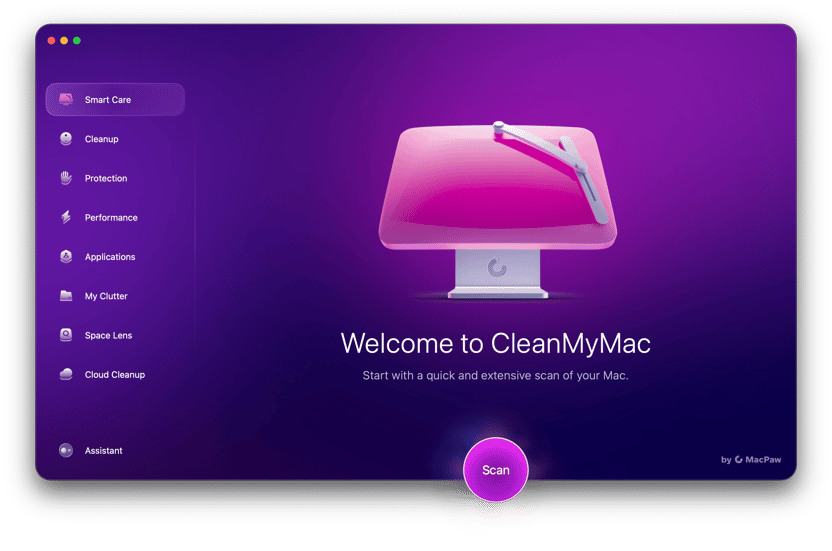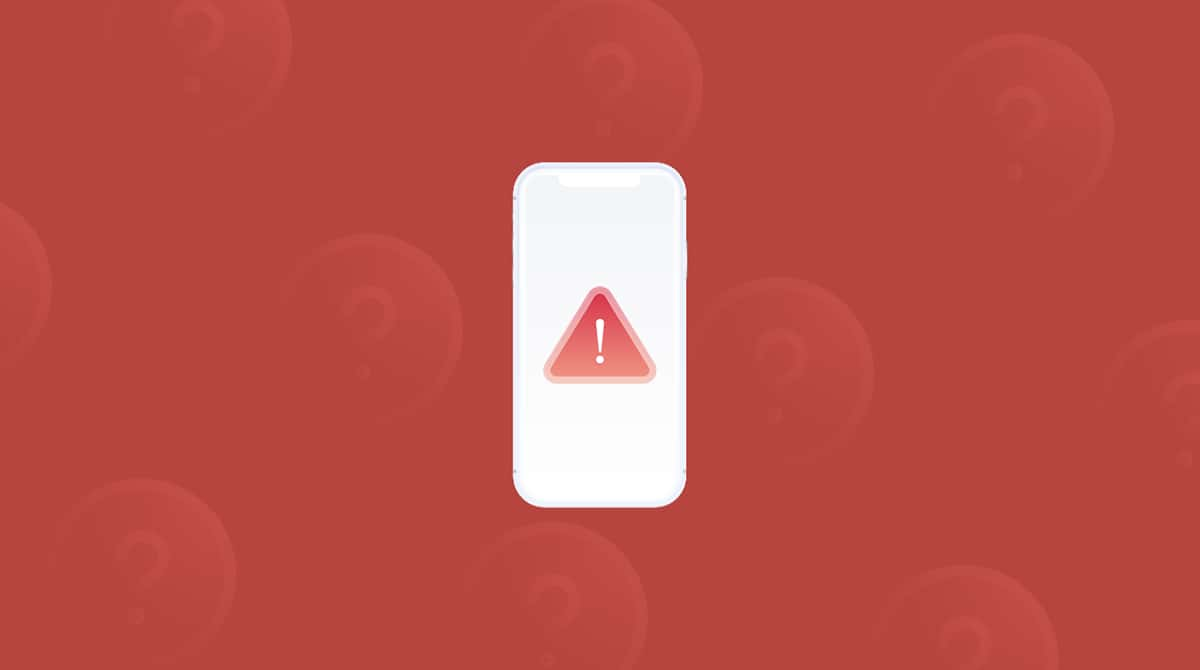Deciding if an app is safe takes more than just common sense. When it comes to apps, you can't just judge the book by its cover. So, how do you know if an app is OK to download?
To find an answer to that question, as any living human would, we asked Google to search for some app validity guide. Spoiler alert, we didn't find a thing! So as developers, we figured we'd put together a list of tips and tricks that can act as a guide for all app lovers out there. Each section focuses on one thing, followed by helpful questions to ask yourself when unsure about how reliable a particular app is.
9 Things to help you decide if an app is safe
1 App stores are your best friends
If you're a Mac user, you've got The App Store, and Android users got Google Play. These stores offer strict guidelines for developers on what apps can or can't contain. So there're very few things a developer can sneak in.
In short, due to the difference in review processes, apps from the App Store are generally safer; apps from Google Play tend to be a bit more problematic.
But wait! Apps outside app stores can be safe, too!
It's not that being outside these stores makes apps unsafe. It's just that it's hard for developers to make it in the App Store. And it's not only because of the guidelines but also the cost! Being on the App Store means paying a yearly fee ($99) and then 30% of the profit you make on your app.
As an example, let's say you're an indie dev. You make one app that you decide to sell for $0.99, and, amazingly, around 5,000 people download it. In the end, you come out with about $2,900. That's quite the hefty cut, and that's before you pay taxes on that income! The math here is simple: profit loss makes selling on the App Store an inviable option for developers and a trigger to start selling outside the App Store.
Let's get back to the guidelines.
The App Store guidelines are so incredibly tight for Mac utilities. Any utility that interacts with system files is flat-out rejected due to sandboxing. Unfortunately, in the context of app trustworthiness, it's still more of a gut feeling than anything else. Some indie devs are entirely trustworthy, but you'll have to check out the following to understand how to judge them better.
Questions to ask yourself about app stores
- What development guidelines does the App Store have?
Bonus: What are commonly rejected apps from the App Store? - What development guidelines does Google Play have?
2 Research new apps and the people who make them
New apps should be carefully picked apart. We don't mean learning code, opening package contents, and seeing exactly how it works (if you do, the more power you have). However, it would help if you get a good idea of everything the new app does. Take, for example, a new mobile game: When it comes to high scores, does it require my Facebook login information so it can post them? Do I want to share my Facebook login info?
This example bleeds into numbers 3 and 4 on this list, but it gives you an idea of what you should know about the app and the questions you should be asking.
Also, check the app website and do some due diligence on the creators, their previous apps, and their status in the tech community. Twitter and Facebook are fantastic for researching what people think about the application and the support team.
Reviews are also a decent reference point for the App Store and Google Play. However, please know that companies can skew these reviews! It's common practice when a company has its employees review their products on the App Store or Google Play. Now, one thing you can do as a buyer is a quick Google search of:

…and you might be able to dig up some dirt.
Another problem is that "professional" reviews from publishers, bloggers, and journals, while generally a good sign, can also be completely absurd. The thing buyers should know is that some of these writers who review an application get a percentage of the publisher's sales. Do you think a bad review generates money for the app? Heck no! A favorable review brings in more money, so it's in the writer's best interest to give a good review, leading to the writer making more money.
That's right, life is tough. So if you haven't got a helmet, we suggest you get one.
In short, when looking at an app, ask yourself:
- What does this app do?
- What's the developer's or company's website?
- What other applications have they made?
- What do the reviews say?
- Does anything feel fishy about it?
3 Read the app's privacy policy
Your data and how it is used is a tricky subject. There's data for everything, from how much coffee you drink to the dance moves you use. And every time you download or use an app, your information is collected. It includes email addresses, contacts, social media login info, and even your screen time.
Now, most companies don't get specific data about you but use this data in many ways. We suggest you learn about what the application is tracking and what the company is doing with your data. This requires reading an application's Privacy Policy. Apps should lay out what information they are accessing and how it will be used.
Questions to ask of the Privacy Policy
- What data will the app collect? And why?
- How will it use that data?
- Are you OK with this?
Remember: There are probably similar apps that may not do/need this info. If you disagree with what the app/company is doing with data collection or usage, search for something else — support developers who are doing the right thing.
4 Read the app's permissions
This one is similar to number 4. Certain apps will ask to see your current location, phone calls, or even the ability to read or write your SD card. For tracking applications, GPS would be a logical thing to allow. But for a mobile game? The rule of thumb is this: if something looks off, don't download it.
If you download apps without them asking for specific permissions, you support those practices — don't be afraid to say no. Feel free to send that company an email and ask them for clarification.
Questions to ask about permissions
- What permissions does the app need?
- Should an app like this need that information?
- Am I comfortable with giving them information that they don't actually need?
5 Email the developer/company, but only if necessary
Everything comes to this point: write the developer if you're unsure of something regarding the matters listed above. The best thing you can do is open a dialogue and ask for direction. If you have a question about booking a hotel, you never hesitate to contact them, right? It should be the same with downloading or purchasing apps.
Plus, the best companies love hearing from their users. Take your laptop and write to the company asking them about whatever is bothering you; it should be no trouble for them to get back to you and ease your worries. Besides, how they respond should give you a better idea of who they are as a company.
Questions to ask yourself
- What information do you need about downloading or purchasing their app?
- How did they respond?
- Do I want to support a company or a developer like this?
6 If purchasing an app outside the App Store or Google Play
Look for security signs! Especially when entering your credit card information, look for logos that include:
- BBB accreditation
- Verisign Secured
- Norton Secured
Or other forms of secure information entry.
Questions to ask about the web store
- Does the website look legit?
- Do they have a secure server? (//…)
- Do they have some form of a security-approved logo on their store?
7 Be sure to help others: review or report apps!
Let's say that everything checks out, and you do download the app: why not write a review or make a post on social media about it? The best thing you can do is to let others know that this app works as intended — or doesn't! Give back to the community by posting your thoughts.
Questions to ask yourself
- Did this app work as intended?
- Was it worth the download/purchase?
- Can I help someone else out who was in my shoes?
- Where can I write this so that someone sees it?
Tip: On Twitter or Facebook, use a hashtag; for example, #appnamehere is a great app and works amazingly well! Replace the "appnamehere" with the app's name or the company/developer who made the app.
8 Keep track of the apps you use & remove the ones you don't
Sometimes we get caught up downloading tons of apps, much like a wiki-hole. You download one, and then another, and another… But, the thing is, updating these apps takes time and a lot of clicking the "Accept" button without actually reading the permissions/privacy-policy changes. It would be best if you stay up-to-date on the apps you use, how they work, and the data they collect. Go through your phone, computer, or Mac, and be sure to get rid of the stuff you no longer use or recognize.
Questions to ask yourself before updating or removing an app
- How does this app work, and what does it collect/track?
- Do I use this app?
- Do I really need it?
9 In all cases, go with your gut
It's worth repeating: be sure to use common sense… you know, your gut! If the app looks a bit off, don't download it. If something seems suspicious, it likely is. Don't ruin your phone, PC, or Mac for an app you think you can't live without. Remember, there are sure to be alternatives — go and find them!
Questions to ask yourself
- Does the app look/feel suspicious?
- Do I use this app?
- Do I really need it?
Hopefully, this has given you a blueprint for determining if an application is safe to use. Be sure to ask yourself the questions at the bottom of each section to ensure an app is worth your time, money, and trust.






